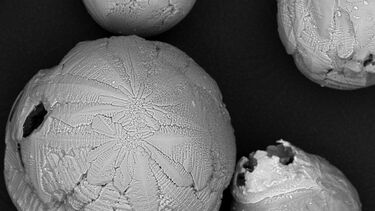Ahmed Aboalhamayie, a 3rd year PhD Mechanical Engineering student, has had his research published in journals Fuel and Fuel Processing Technology as well as an accepted conference paper in Spain.
The research, in collaboration with Wilkes University and the Nanotechnology Centre in Saudi Arabia, aims to significantly improve jet aviation fuel by integrating tiny carbon particles, specifically carbon fly ash and single-walled carbon nanotubes (SWCNTs). By optimizing heat and combustion properties, this will potentially enhance aviation efficiency and lower the environmental impact.
Ahmed has also introduced a novel combustion method where iron micron and nano-particles are burned within a liquid fuel, which has been carefully engineered to promote efficient combustion and the liquid fuel will also protect the iron particles from oxidation during long term storage. This approach explores the use of iron as a recyclable, carbon-free energy carrier, with combustion producing only iron oxide, which can be regenerated using green hydrogen—an exciting prospect for future low-carbon fuel systems.
Recently participating in the prestigious UK Energy Storage Conference 2025, Ahmed contributed to a parallel session presenting his work 'Iron Particle in Liquid Fuel Combustion Technology for Nonoxidative Storage and Easy Burning' in the hydrogen and other fuels category.
Ahmed said: “I have dedicated the last two years to advancing innovative combustion technologies. This research not only pushes the boundaries of sustainable fuel technologies but also demonstrates the potential for transforming combustion residues into valuable materials. It represents a unique intersection of material science, combustion engineering, and environmental sustainability, offering significant opportunities for innovative research and industrial applications.”


